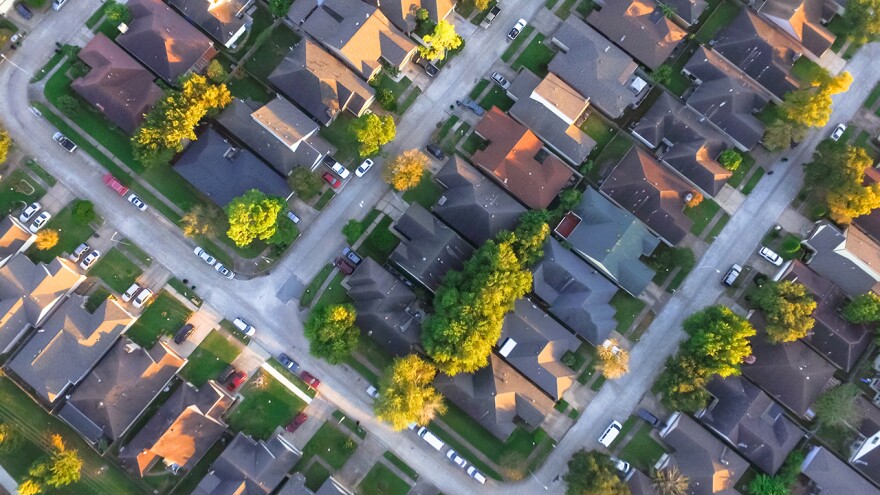HARRISBURG, Pa. — Two Lehigh Valley representatives in the state House recently proposed legislation to make affordable housing more accessible.
State Rep. Robert Freeman, D-Northampton, has legislation in committee to help people with less wealth buy homes, in something his staff is calling a lease-to-purchase bill.
And state Rep. Joshua Siegel, D-Lehigh, has a package of bills aimed at targeting affordable housing.
Freeman's House Bill 1922 would establish the Pennsylvania Lease Guaranteed Purchase Option Home Ownership Program, which would let households rent homes before moving to a mortgage, retaining lower interest rates and some equity from rental payments.
“Alternate models are especially needed to ensure that lower-income households have access to sustainable homeownership."State Rep. Bob Freeman
“Alternate models are especially needed to ensure that lower-income households have access to sustainable homeownership," Freeman said in a release.
"One such model, the lease-to-purchase mortgage, allows a household to rent a home for a period before taking on the mortgage and ownership of the property with a portion of each month’s rent set aside in an escrow account and used to cover the down payment and closing costs.
The rental lets households "build a positive credit history and increase their savings before taking on the responsibility of a mortgage, while at the same time ‘locking in’ lower interest rates and house prices,” Freeman said.
He said lease-to-buy programs also contribute to neighborhood stabilization and "bring the stability and investment associated with home ownership to neighborhoods experiencing the potential negative effects associated with a lack of owner-occupied properties.”
“This critical measure would help to expand access to affordable home ownership and assist local governments with revitalizing neighborhoods throughout the commonwealth,” Freeman said.
Bills tackle affordable housing
Siegel's proposed legislation include House Bills 1988, 1976, 1975 and 1799.
The first three are aimed at changing zoning and construction codes to make denser housing easier to build in suburban neighborhoods. House Bill 1799 would incentivize reworking abandoned or empty shopping malls into mixed-use developments.
"This is very clearly a supply-and-demand issue."State Rep. Joshua Siegel
“I think all of them go hand-in-hand,” Seigel said. “They're all designed to address the same problem, which is that the state of Pennsylvania and, in particular, the Lehigh Valley, has really just a tremendous shortage of housing.
"So this is very clearly a supply-and-demand issue.
“All of this legislation is intended to make sure that our communities can grow fast enough and organically, to accommodate and absorb all that demand to make sure that people have the freedom to live wherever they want to live, and also to find housing that's within their means.
"I think the more housing we build, the easier it will be to taper off price increases and make housing a lot more accessible for folks.”
Taking on zoning issues
House Bill 1975 would simply rezone all single-family areas to also include duplex, triplex and quadplex building, which Siegel said will allow for denser housing in traditionally suburban neighborhoods.
House Bill 1976 would allow for multi-family developments in commercial zones if the developer has will-serve letters from sewer and water utilities, as well as enough parking spaces planned.
“I think it's really critical that we create mixed-income neighborhoods with different varieties of working-class folks all living amongst each other."State Rep. Joshua Siegel
“I think it's really critical that we create mixed-income neighborhoods with different varieties of working-class folks all living amongst each other," Siegel said.
"And part of doing that is breaking exclusionary zoning, and making sure we get around that the other bill, which allows multifamily housing, in anything currently zoned office or commercial.
"I think it is very critical to once again make sure that each community does its fair share and building housing.”
House Bill 1988 would let smaller apartment building developers build just one central staircase as long as they were to meet other, higher-level fire safety provisions, such as extra sprinklers.
Siegel said the cost of two staircases, as is currently required, often can be prohibitive to building affordable apartment buildings. He modeled the bill after legislation he said has been successful in Seattle.
Will it work?
Asked about the possible success of such legislation, Karen Beck Pooley, a professor of Practice in the Department of Political Science at Lehigh University, said, “One challenge is that zoning just sort of sets the rules, it doesn't actually build the housing.
"So you can change the rules and say, ‘Well, this, we now allow, we allow these new things where we didn't used to,’ but until someone picks them up on that, the streets are not going to look any different.
"And so in some cases, the earliest adopters need to be coupled with, whether it's design guidelines or technical assistance, even incentivizing grants to sort of get this project started.”
"You just want to make sure that, again, you don't know how things are going to go until they start going.”Lehigh University professor Karen Beck Pooley
Beck Pooley said the bills could be a good starting point, but said one thing to be wary of is denser zoning that may be used in already underserved neighborhoods to create even worse conditions.
Affordable housing legislation may, "instead of providing more affordability and housing choices in high opportunity neighborhoods, inadvertently destabilize sort of middle working class neighborhoods," she said.
"You just want to make sure that, again, you don't know how things are going to go until they start going.”
Beck Pooley said just because similar legislation worked elsewhere doesn't mean it will in Pennsylvania, which has a unique character.
“I don't know if Pennsylvania has seen these kinds of things before," she said. "And I don't know, you know, Pennsylvania is one of those places.
"This is an issue that matters a lot to certain types of communities … It's an important economic development tool; affordability of housing and lack of housing is certainly a huge concern across lots of Pennsylvania.
"And even in places that have lost population, figuring out how to redesign or rebuild or reinvest is a big deal.”


